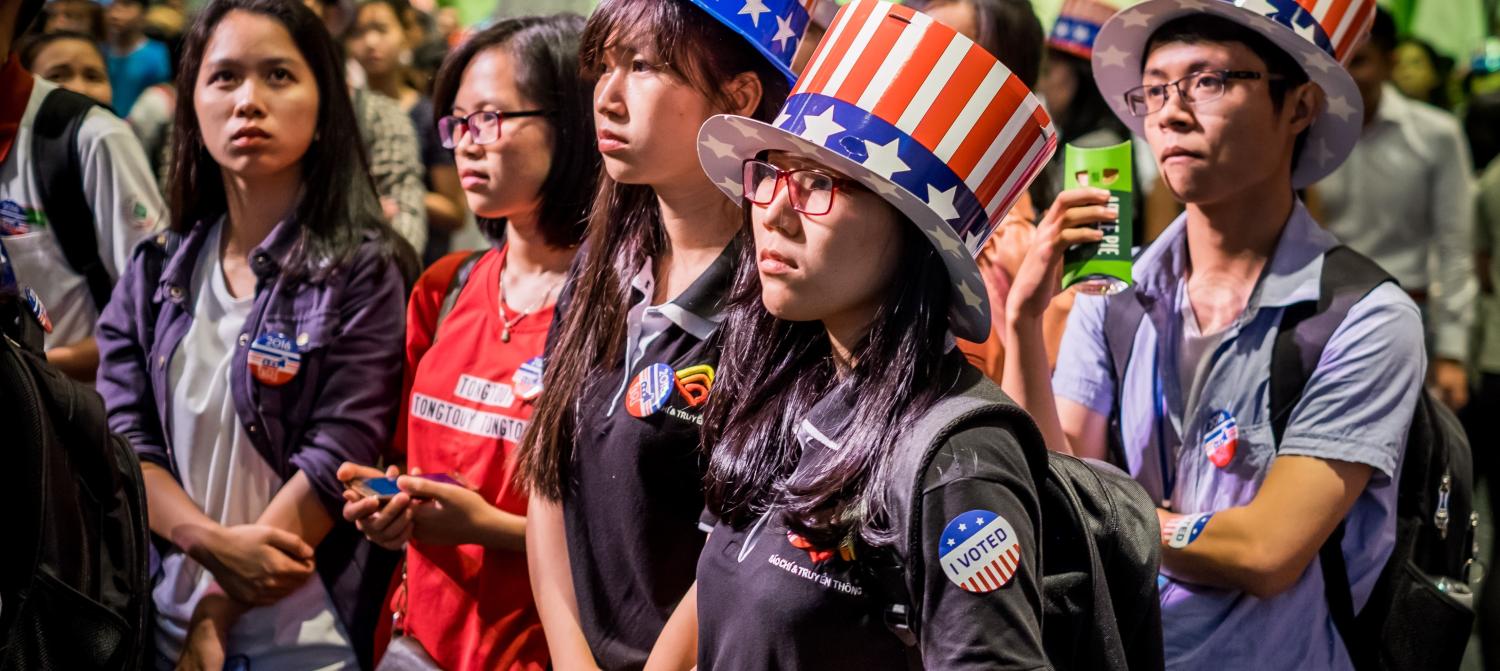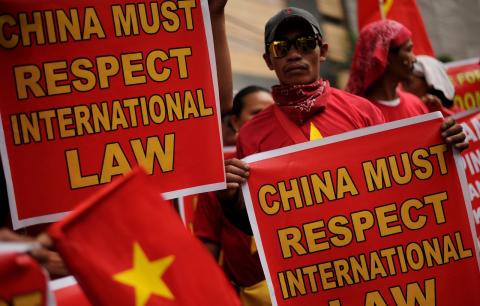Vietnam was thought to be a big winner from the Trans-Pacific Partnership (TPP). As such, US President-elect Donald Trump's promise to withdraw from the deal is obviously bad news. Though it wasn’t unexpected, Vietnam has several reasons for disappointment:
- It might be a signal of a slowdown in momentum for the US-Vietnam relationship, throwing Hanoi’s strategic calculus out of balance.
- Without many other options, Vietnam might fall back again to economic dependency on China. In such a case, Vietnam’s bargaining power and room for resistance vis-à-vis China in the South China Sea dispute would be minimised.
- Domestically, the TPP not only would have meant a boost for economy but also a significant impetus for other reforms.
Vietnam’s trajectory of rapid rapprochement with the US over the last two years has had strategic imperatives. In the context of growing tensions with China over the South China Sea dispute, Vietnam has received much needed political support from Washington. Diplomatic rapprochement has since expanded to more defence and military cooperation. Improving bilateral relations with Vietnam has arguably been one of the biggest success cases of Obama’s rebalance policy.
On the economic front, news was also generally positive: while having its largest trade deficit with China, Vietnam’s largest trade surplus was with the US. The strategic option that the TPP would have offered would have been less economic dependency on China. When Vietnam was listed as one of the 12 economies included in the Trans-Pacific Partnership (TPP), many raised their eyebrows: the Vietnamese economy was seen as ill-prepared and there was not enough time for the necessary reforms. But for Vietnam, the prospect of TPP membership created many incentives.
However, in the US, the TPP (once hailed as the crown jewel of the US rebalance to the Asia) was not received well domestically. It became one of Trump’s focal attacking points; his victory has rendered US participation in the TPP unfeasible. Losing such an important component of the newly-found US-Vietnam friendship means starting off on the wrong foot. Quitting the TPP has also a symbolical meaning for Vietnam and countries in the region; Trump’s commitment is unlikely to be anywhere as close as Obama’s and the TPP might be only the first sign of it. The bigger worry would be if this trend continues and his apparent disinterest in Southeast Asia translates to the South China Sea dispute as well. Trump’s lukewarm (at best) attitude towards Southeast Asia and small and middle powers generally does not put Vietnam in a preferential spot.
In regard to the domestic economic gains, the TPP would have provided a significant economic boost to Vietnam and a stimulus for economic reform, including policies related to state-owned enterprises. The manufacturing, logistics and agriculture sectors were among those that expected a positive impact. The TPP would have provided an impetus for the second phase of ‘Đổi Mới’ reforms, and helped to sustain the country's high rate of economic growth. The close relationships between political and business elites that still prevail, together with a highly bureaucratic environment, hamper entrepreneurship. Reforms that were expected to accompany the TPP would have fostered a healthier business environment. An economically stronger Vietnam would have been a more stable player in regional politics. Cancelling and suspending talks on the TPP is likely to slow the process of economic reform.
Trump is yet to formulate his stance on many issues in global security. His attitude towards China has been ambivalent, ranging from blaming it for stealing American jobs and flooding the US market with cheap products to more economically savvy interests. China’s military build-up in the South China Sea may yet invite a strong reaction from Trump. Whatever approach he takes, it’s a stressful time for countries like Vietnam. Adjusting to inconsistent policies from a big player will be highly challenging for smaller nations. Moreover, it is likely to take the Trump administration some time to learn about nuances and specificities of the region. That time could come at a high cost.
Photo: Getty Images/Linh Pham

